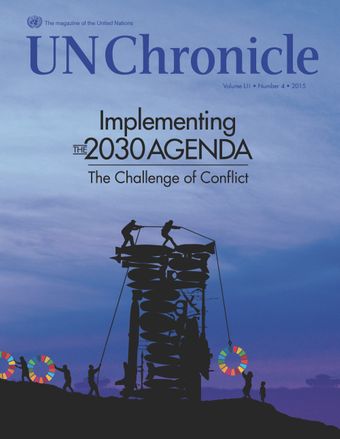-
Women’s Participation in Transforming Conflict and Violent Extremism
- Source: UN Chronicle, Volume 52, Issue 4, Mar 2016, p. 10 - 12
- French
-
- 18 Mar 2016
Abstract
Few countries in the world match Pakistan in its political, social or economic complexities and securityrelated challenges. It is a country of nearly 200 million people, from over a dozen ethnic and minority groups, and myriad tribes who have coexisted peacefully for decades. It is the same country, however, that has been grappling with violent extremism in different shapes and forms for the past 15 years. In Khyber Pakhtunkhwa (KP) and the Federally Administered Tribal Areas (FATA), violent extremism is most acute, and women are on the front lines of warfare. They are the widows, victims and survivors of the suicide bomb blasts, the displaced and the traumatized. Their male relatives are either fighting or gone, and therefore many women are de facto household heads, shouldering the responsibility for feeding, nursing and sheltering the old, the young and the injured.1 Yet their mobility, access to education and health facilities, and ability to fully care for their families are severely impacted. Extremists have exploited women in the name of religion, forcing them to raise funds and send their own sons and those of other members of their families and communities to work with and for extremists, particularly in the Swat District. Often women have supported extremists in their own ways by stitching suicide jackets, collecting gold and money, serving as informants and providing shelter.
© United Nations



